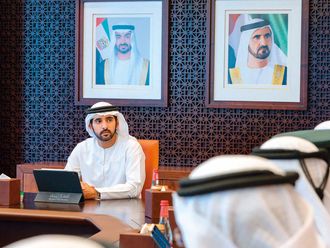Abu Dhabi: Nearly 250,000 public and private school pupils in the emirate of Abu Dhabi will start learning the basics of computer coding within the next two years.
The initiative, titled Computer Science First, was launched in the capital today (November 22) as part of UAE Innovation Week by the emirate’s education sector regulator, the Abu Dhabi Education Council. The coding skills will be taught in collaboration with technology giant Google, which piloted the scheme in three schools earlier this year.
“Computer Science has revolutionised our lives, and it is linked to careers for which demand will continue to grow. In a place as rapidly developing as Abu Dhabi, new job opportunities will continue to be created in Computer Science-dominated sectors, such as aerospace, green technologies, renewable energies and mobile government,” said Mohammad Mourad, managing director at Google for Middle East and North Africa.
“[Therefore], in addition to training pupils, we also hope to train teachers so that they can deliver these coding skills in their own classrooms, as well as introduce 15 after-school coding clubs,” he added.
In a pilot project carried out for two months, pupils at three Abu Dhabi-based schools learnt Scratch, a free programming language that allows users to create interactive stories, games and animations. A programming expert said that Scratch enables children to learn about programming logic and structure, including loops, jumps and problem solving, using a fun interface. This language will be taught as part of the Computer Science First project to all public school pupils in Grades 4, 5 and 9.
“Google’s CS First program will empower Abu Dhabi youth to adapt to new thinking and learning methods while acquiring critical analysis and reasoning skills. These are essential tools to prepare our students for the world of knowledge creation,” said Dr Mugheer Al Khaili, chairman of the Health Authority Abu Dhabi and member of the Abu Dhabi Executive council.
Since the beginning of the 2015-2016 school year, 30,000 pupils enrolled in public schools in Grades 4, 5 and 9 have already started using and learning Scratch.
Mourad said that feedback about the experience had been extremely positive.
“There has been a 40 per cent jump in children who believe they can create using coding, and a 15 per cent increase in the number of pupils who feel they can resolve the situation if they get stuck with a coding-related challenge,” he explained.
Efforts are also under way at the Adec towards pushing private schools to teach coding to pupils. In addition, other advanced programming and coding languages could also be introduced in the future to older pupils in Grades 10 to 12.












